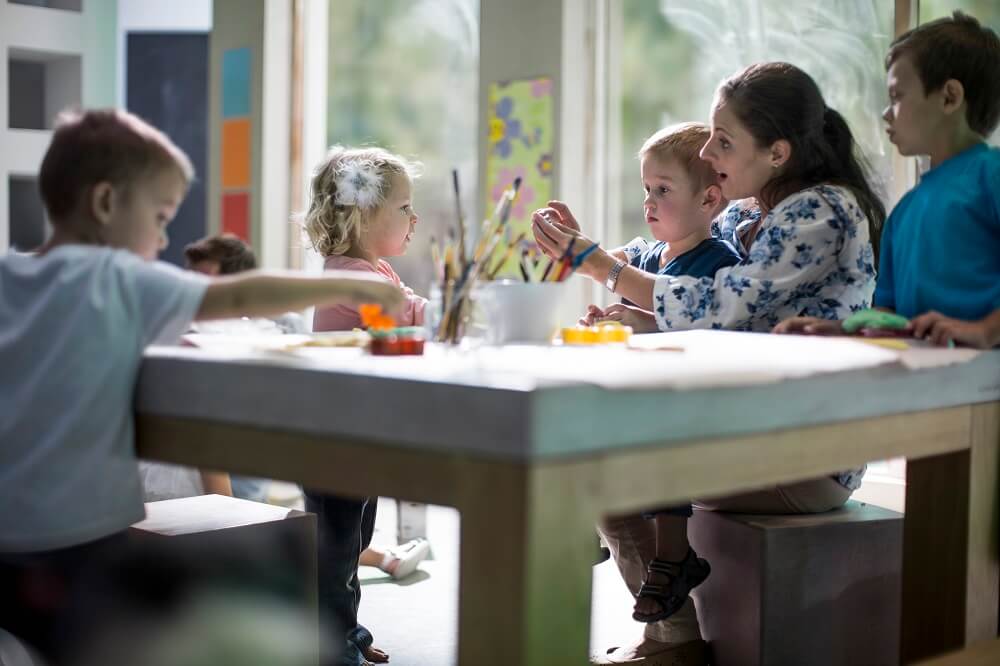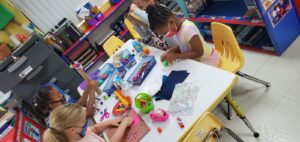Emotional development is crucial to a child’s growth and overall well-being. It encompasses the ability to identify, understand, and manage one’s emotions, as well as to recognize and respond appropriately to the feelings of others.
As children learn to navigate the complex world of emotions, they develop essential social and emotional skills that will serve them well throughout their lives.
This article will explore the importance of children’s emotional development, how to develop children’s emotional skills, and ways to support their emotional well-being through social-emotional activities.
Importance of Emotional Development in Children
According to the American Psychological Association, children’s emotional needs should be a top priority for parents, caregivers, and educators, since its development is critical to children’s mental health and social skills.
Toddlers who can identify and manage their emotions are better equipped to handle stress, build positive relationships, and communicate effectively with others. Emotional intelligence in children also supports academic success, as it helps children focus, regulate their behavior, and learn from their experiences.
Moreover, supporting children’s emotional development early on can help prevent later mental health issues. Children who struggle with emotional regulation may be at a higher risk of developing anxiety, depression, and other mental health conditions.
How to Develop Children’s Emotional Skills?
Now, you might be wondering when do toddlers understand emotions. According to Rasmussen University, toddlers’ emotional development can be divided into several stages.
The first stage, from birth to six months, involves the development of basic emotions such as pleasure, distress, and excitement. The second stage, from six months to two years, includes the emergence of more complex emotions such as fear, anger, and sadness.
During this stage, toddlers begin to recognize and label their own emotions, and they may also start to show more awareness of other people’s emotions. However, they may struggle to regulate their own emotions and may have frequent emotional outbursts.
By the time toddlers reach the third stage of emotional development, which spans from two to four years of age, they are better able to regulate their emotions and show greater empathy for others. They are also able to understand that different situations can trigger different emotions, and they may use language to express their own feelings and understand the emotions of others.
Also, research has shown that children’s emotional development is built into the architecture of their brains and is influenced by their relationships with caregivers and their experiences during early childhood.
According to the Harvard Center on the Developing Child, three fundamental principles can help promote healthy emotional development in children:
- Support responsive relationships: Children need warm, responsive, consistent relationships with caregivers to develop healthy emotional skills. When caregivers respond to a child’s emotional needs, it helps them to build their sense of security and trust.
- Strengthen core life skills: Core life skills, such as self-regulation and executive function, are critical for emotional development. These skills can be developed through play, positive interactions with caregivers, and other experiences that help children learn how to manage their emotions and behavior.
- Reduce sources of stress: Chronic stress can negatively affect a child’s emotional development. Reducing sources of stress, such as exposure to violence or poverty, can help promote healthy emotional development.
How to Support Children’s Emotional Well-being?
Social-emotional development in children is a lifelong process that begins in infancy and continues through adolescence. Supporting children’s emotional well-being involves creating a safe and supportive environment, offering empathy and validation, and teaching coping strategies. Here are some ways to support children’s emotional well-being:
- Create a safe and supportive environment: Children need to feel safe and secure in their surroundings to develop a strong sense of emotional well-being. According to The CDC, establishing a routine for meals, bedtime, and other daily activities can provide children with a sense of security and stability.
- Offer empathy and validation: Children need to feel heard and understood. Offer empathy and validation by actively listening without judgment and acknowledging the importance of their feelings. This can help children develop a sense of emotional intelligence and feel more confident in expressing their emotions.
- Teach coping strategies: Coping strategies can help children regulate their emotions and feel more in control during stressful situations. Teach them simple techniques such as deep breathing, visualization, or mindfulness exercises. The CDC also recommends helping children identify things that help them feel calm and providing them with opportunities to engage in those activities.
- Support physical health: Physical health is closely tied to emotional well-being. Therefore, encourage young children to get enough sleep, eat a healthy diet, and exercise regularly. The CDC also recommends limiting screen time and promoting outdoor play and other forms of physical activity.
Social-Emotional Activities for Toddlers
Strong emotional development in toddlers is an important milestone, and they require fun, engaging, and age-appropriate activities to help them grow and develop their emotional intelligence:
- Play-based activities for emotional development: Offer toddlers opportunities for pretend play to help them understand different emotions. For example, use puppets or stuffed animals to role-play other emotions and encourage toddlers to identify and express their feelings.
- Develop emotional vocabulary: Help toddlers develop a rich vocabulary for their feelings. Use picture books or flashcards to help them identify different emotions and label them.
- Reading books about emotions with toddlers: Choose books that focus on emotions to help toddlers learn about different feelings and how to express them.
At Creative Learning Experience, children’s emotions and feelings are important. We know it is essential to support childhood development, which is why we aim to create a safe and supportive environment that can help model healthy emotional expression and regulation and offers opportunities for emotional management and coping strategies.
By focusing on and helping children’s emotional development, we can empower them to acquire the skills and resilience essential to achieve success in life. Contact us to learn more about our programs and how we can help your child develop the skills and resilience they need to succeed in life.




